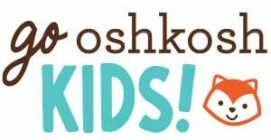When you become a parent, it is tempting to purchase all the fancy toys. Toys that play music, light up, and talk to your child can be fun, but at the same time, they may be taking away from the meaningful social interaction they need with you. In fact, you don’t need any of those toys.
As a speech-language pathologist with eight years of experience working with school-age children, the best way I recommend to improve your toddler’s language skills at home doesn’t require expensive toys that light up and talk. Those functions typically hinder, not help, a child’s language development because adults tend to talk less to children as they play with those types of toys.
What is Language?
Speech and language are often lumped together, but they are different:
- Speech has to do with the sounds a child produces, such as vowel sounds and early developing sounds like b, p, d, and m.
- On the other hand, language has to do with the actual words they are saying (vocabulary), the length of their sentence, understanding simple directions, labeling objects, and answering simple questions. For a more in-depth definition, check out the American Speech-Language-Hearing Association website.
A 2016 article from the American Speech-Language-Hearing Association cites a research article that found parents tend to talk less, take less conversational turns, use less parental responses, and produce less specific vocabulary words when playing with electronic toys with their toddlers. The article highlighted how non-electronic toys, such as traditional toys and books are much more beneficial for a child’s language development.
Language development during early childhood is a critical time. A child’s language is exploding during this time and it’s a vital time for future success with language and learning to read.
Since electronic toys are discouraged and not needed, below are some simple toys and ideas for improving your toddler’s language skills at home.
Most of my recommendations are “open-ended” toys, meaning you and your toddler can use your imagination to come up with multiple ways to play with them.
Toy Recommendations to Improve Language Skills
- Blocks
- Books
- Puppets
- Play kitchen
- Race cars
- Dress-up outfits
- Playdough
- Kinetic Sand
Jenna Rayburn, the speech-language pathologist blogger of Speech Room News, has wonderful toy recommendations.
Read more ideas on Toys to Encourage Good Toddler Speech & Language Skills on her website.
How To Work On Language Skills During Daily Routines
One of the most beneficial ways to improve language skills in children is using activities that families are already doing daily. They don’t cost anything and include important language building opportunities.
The list below contains some ideas to get you started. Still, ultimately any daily activity that is repeated and full of vocabulary, following directions, and social interaction is a fantastic way to work on improving your toddler’s language skills at home.
Baking
When you bake with your child, you can work on their language skills by giving them 1-2 step directions to follow and using baking nouns and verbs (hot, cold, pour, scoop, mix, turn, go, stop, bowl, spoon, knife). It is also a wonderful way to work on basic concepts, such as big, little, more, less, on, off, under, over, etc.
Laundry
When doing laundry, your child can help by labeling the type of clothing (pants, socks, shirt, underwear, pajamas) or naming the color of the clothing. They can sort them into those specific groups. You can narrate while you are changing the laundry from the washer to dryer, while you’re folding, and while you’re putting the laundry away. It may seem weird to talk as you do those things, but it’s one of the best ways for children to learn language.
Bath Time
We can use bath time for so much more than getting clean! Simple bath toys such as boats and rubber ducks provide opportunities to work on language concepts such as fast, slow, float, sink, go, stop, under, etc.
You can also work on simple counting, turn-taking, and bath-specific vocabulary words such as soap, scrub, clean, dirty, towel, shampoo, washcloth, wet, and dry.
I hope this generated some simple ideas for improving your toddler’s language skills at home. Although electronic toys can be fun to purchase, they are not necessary and can actually decrease the amount of language a child hears and produces when playing. Play and daily routines are an incredibly important part of a child’s day.
Don’t discount how much you can teach your child by simply interacting, playing, and talking with them.


